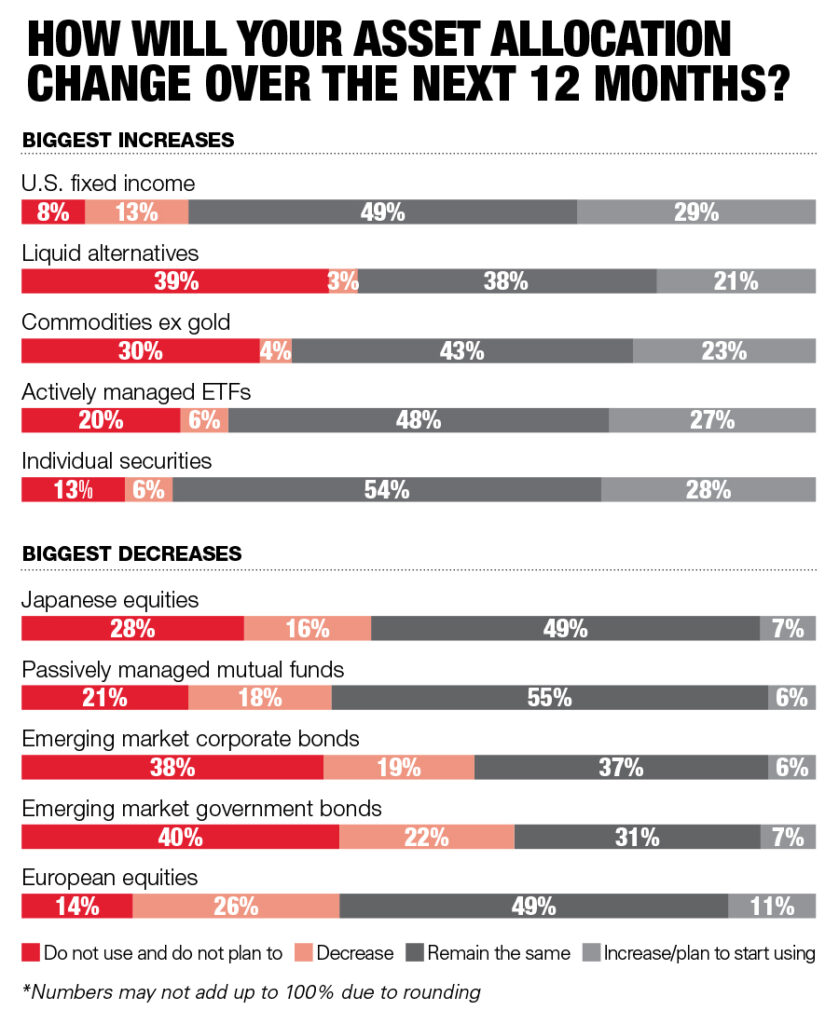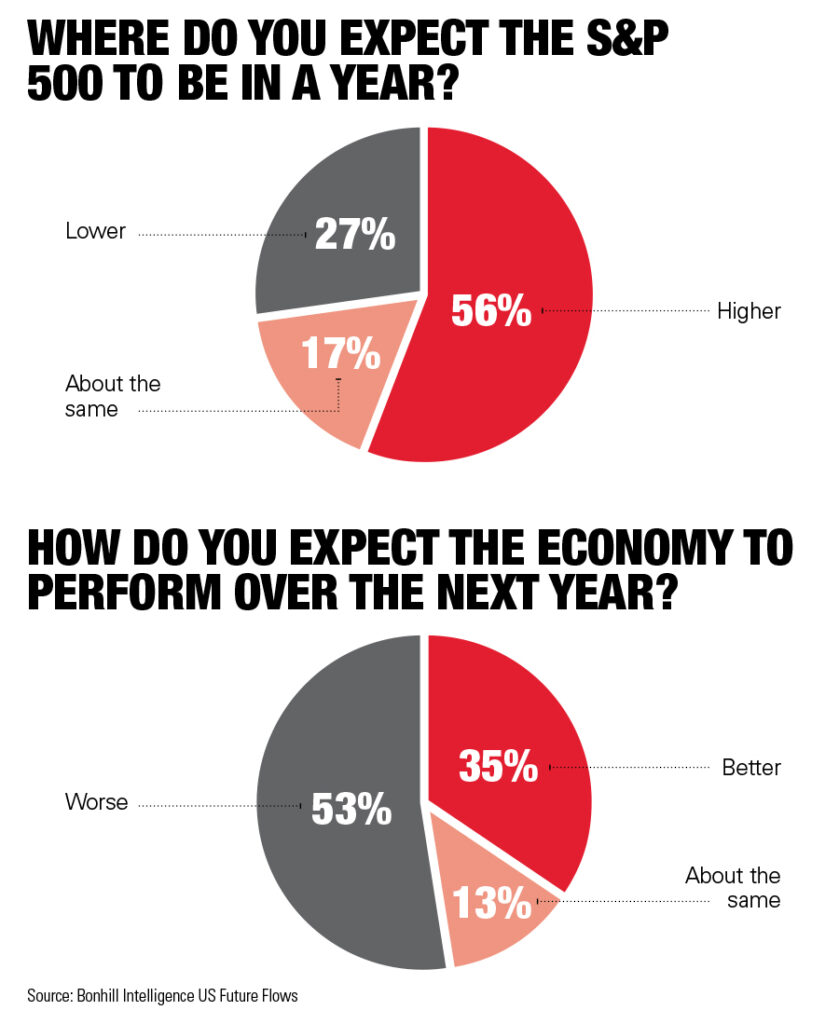

Confidence in the markets and overall economy among U.S. financial advisers remains near the lowest levels since the outset of the coronavirus pandemic in early 2020, according to the latest Bonhill Intelligence US Future Flows report.
The results from the asset allocation survey, which was fielded just before the S&P 500 hit its one-year low on June 16, show advisers shifting strategies to help clients cope with the elevated volatility that has persisted since the beginning of the year. But it also shows many advisers expect the worst is behind us.
A majority — 56% — of U.S. financial advisers expect stocks to rise over the next 12 months, according to the survey. Yet 27% expect markets to broadly decline. That net positive sentiment of 29% is a slight improvement from the first-quarter survey but down from 36% in the middle of 2020, fresh off the coronavirus sell-off.

With spiking inflation and ever-higher interest rates, advisers were even less optimistic about the overall economy, with more expecting it to contract than to grow, 53% to 35%. The past two quarters are the only time since 2020 where more advisers expected a decline than growth.
Among the biggest winners amid the uncertainty were individual securities, which 28% of advisers expected to increase exposure to, and active ETFs, which 27% planned to add to client portfolios. In other words, advisers were looking for opportunities to add alpha as broad stock indices continued to disappoint.
Commodities (excluding gold) are also set to see higher demand over the next year, with 24% of advisers anticipating increased exposure for their clients. This asset class, which has benefitted from higher energy prices this year, has come partly at the expense of ESG factors. Only 15% of advisers expect to ramp up their use of ESG over the next year, down from 24% a year ago, likely because many such funds exclude oil and gas and missed one of the strongest growth opportunities over the first half. Interest in the investing strategy has cooled after several quarters of increasing utilization by the industry.
Other asset classes pegged for increased allocation per the survey included liquid alternatives, fixed annuities, real estate and cash. International categories, including European equity funds and emerging market debt, were viewed least favorably by advisers thinking about their outlook for the next year.

Despite the relatively negative overall outlook, enough advisers appeared to believe that the worst of the market turmoil is in the rear view, with both U.S. equities and fixed income seeing positive sentiment for the first time in at least a year.
Among advisers surveyed, 26% anticipated increased allocations to U.S. equities over the next year, while 29% expected to increase their allocations to U.S. fixed income. That compares to 19% and 12%, respectively, a year ago, when on net, advisers were reducing exposure to U.S. markets.
And that was before the most recent market low, from which stocks have since begun to recover, albeit inconsistently. While advisers may not expect anywhere near the market growth over the next year that investors enjoyed in 2021, many advisers believe they’ve already seen the bottom this year.
The next US Future Flows quarterly report will be published in September.

Firms in New York and Arizona are the latest additions to the mega-RIA

The agent, Todd Bernstein, 67, has been charged with four counts of insurance fraud linked to allegedly switching clients from one set of annuities to another.

“While harm certainly occurred, it was not the cataclysmic harm that can justify a nearly half billion-dollar award to the State,” Justice Peter Moulton wrote, while Trump will face limits in his ability to do business in New York.

Sieg, 58, was head of Merrill Wealth Management, left in 2023 and returned that September to Citigroup, where he worked before being hired by Merrill Lynch in 2009.

Technology can do a lot of things, but advisors still have undeniable value
Orion's Tom Wilson on delivering coordinated, high-touch service in a world where returns alone no longer set you apart.
Barely a decade old, registered index-linked annuities have quickly surged in popularity, thanks to their unique blend of protection and growth potential—an appealing option for investors looking to chart a steadier course through today's choppy market waters, says Myles Lambert, Brighthouse Financial.
